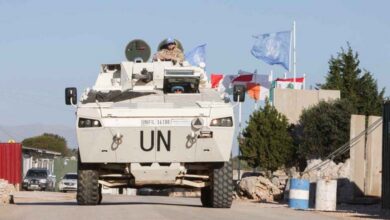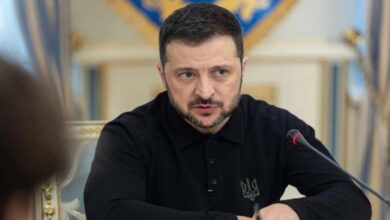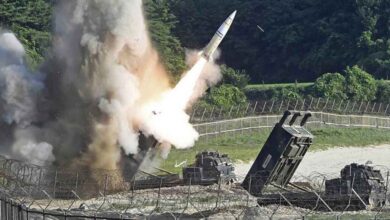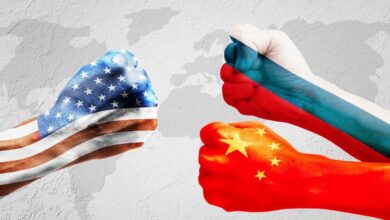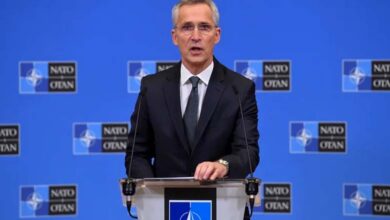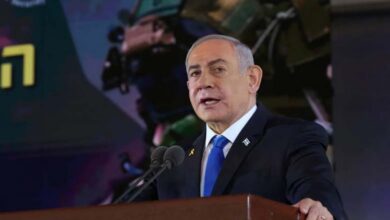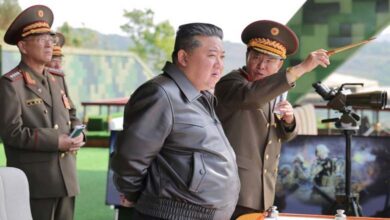Saudi Arabia Played a Decisive Role in Preventing the Forced Displacement of Palestinians
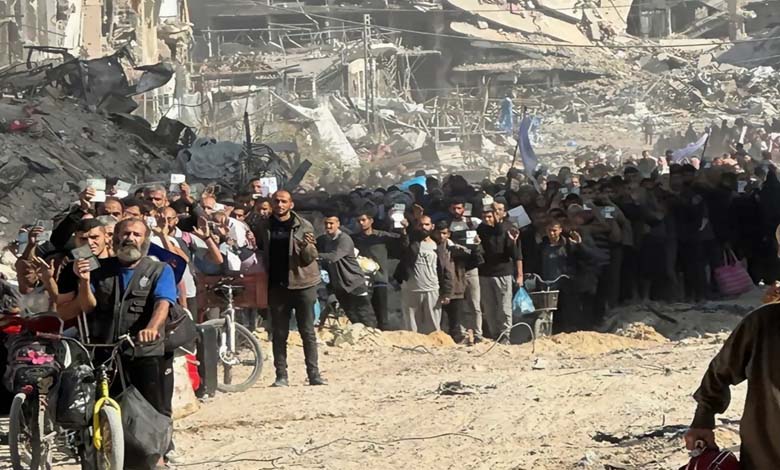
Saudi Arabia succeeded in overturning a major U.S. political decision to expel Gaza residents, despite the close alliance between the United States and Israel, particularly during Donald Trump’s presidency.
-
Latest from Gaza: Ongoing Israeli Airstrikes and Ceasefire Negotiation Details
-
Palestinian political analyst: Gaza’s humanitarian situation is catastrophic and international pressure falls short of addressing the crisis
Recent Israeli media reports have revealed that Saudi Arabia played a key role in thwarting an American plan, backed by Trump, which sought to relocate hundreds of thousands of Palestinians from Gaza under the guise of “voluntary migration.” This demonstrates Riyadh’s ongoing diplomatic efforts to safeguard Palestinian rights.
According to Israeli outlet Walla, citing security and political sources, Saudi Arabia found itself at the center of a complex diplomatic equation, managing to pressure the world’s most powerful capital to abandon a highly dangerous plan that would have reshaped the Palestinian issue and set a precedent for forced expulsions masked as humanitarian relief.
-
Latest Gaza News: Death Creeps Westward, Israel Issues Warning to Residents of 18 Areas
-
Palestinian Political Analyst: The Occupation is Deliberately Strangling Gaza… and the International Community Fails to Act
The policy reversal reportedly occurred following Trump’s visit to Riyadh in May during his Gulf tour, which included the signing of major defense, energy, and investment deals worth hundreds of billions of dollars.
The Saudi position was unequivocal: any plan that includes the mass displacement of Palestinians—even if couched in terms like “voluntary migration”—was categorically rejected across the Arab and Islamic worlds. Such proposals, they warned, could destabilize the region and threaten long-term alliances with the U.S.
-
Gaza Latest: 31 Killed by Israeli Fire Near Aid Center
-
U.S. Proposal on Gaza on Hamas’ Table… Talk of a Possible Breakthrough
Trump’s initiative, presented as the “Rehabilitation of Gaza,” aimed to transform the coastal enclave into a thriving economic zone, akin to a “Middle Eastern Riviera,” but conditioned on the large-scale relocation of its population to third countries.
Though framed as humanitarian and developmental, the plan quickly drew harsh criticism from Arab and international circles. Human rights organizations labeled it as a form of “disguised forced displacement,” arguing that true voluntariness is impossible under siege and humanitarian catastrophe.
-
Who Is the Yasser Abu Shabab Group Opposing Hamas in Gaza?
-
Gaza Latest: Evacuation Orders in the North and Humanitarian Ship Intercepted at Sea
Saudi Arabia, supported by a unified Arab stance, played a critical role in undermining the project’s political momentum. Israeli sources confirmed that Riyadh’s messages to the White House were clear and firm: implementing such a plan would violate historic Palestinian rights, including the right of return, and damage America’s standing with its traditional allies.
A senior Israeli official told Walla that Saudi Arabia expressed willingness to support development initiatives in Gaza but insisted that forced or voluntary displacement was a red line.
-
Café altercation puts France on alert – Gaza war echoes in Paris suburbs
-
Gaza Foundation: Potential U.S. Funding Could Entangle Washington in Aid Chaos
Israel, which had counted on U.S. backing to promote the plan, was surprised by the sudden change in Washington’s position following Trump’s visit to Riyadh. Israeli efforts to find third countries willing to host relocated Palestinians failed without strong American support.
Simultaneously, another American proposal included allocating approximately $2 billion to build “humanitarian transition zones” inside or near Gaza to temporarily house residents before transferring them abroad. This idea also faced strong objections, particularly from Saudi Arabia, which saw it as an indirect expulsion policy undermining future peace efforts.
-
Latest Gaza News: 15 Killed While Waiting for Aid, Israel Acknowledges Incident
-
When the Besieged Rise Up… Gaza Shouts at Hamas
An informed Arab diplomat confirmed that Saudi Arabia had made it clear to the Trump administration that such proposals had no regional backing and risked sparking greater instability rather than resolving tensions.
These revelations go beyond mere opposition to a controversial plan. They highlight the effectiveness of principled and firm diplomacy when backed by strategic influence and political legitimacy.
-
Palestinian Political Analyst: The Occupation Is Deliberately Starving Gaza’s Children to Break the People’s Resilience
-
Hunger Precedes Aid: Food Warehouse Stormed in Gaza Amid Humanitarian Collapse
Despite a close U.S.-Israeli alliance, especially under Trump, Saudi Arabia managed to reverse a major American policy that would have affected one of the most sensitive issues in the region: the future of the Palestinian people.
Riyadh’s message was clear: unilateral solutions that disregard Palestinian rights or bet on their dispersion are unacceptable.
In a time of rapidly shifting alliances, Saudi Arabia has reaffirmed its political weight and its ability to influence global dynamics—even when confronting its closest international partners.




